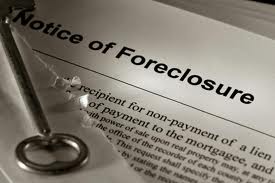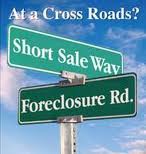Early in 2011, the Massachusetts Supreme Judicial Court (SJC) approved a lower court ruling that called into question the validity of thousands of foreclosures throughout the Commonwealth. In US Bank vs. Ibanez, the SJC held that the lender did not have the legal authority to foreclose because they couldn’t actually prove that they owned the mortgage. Specifically, the Court found that the lenders’ practice of transferring ownership by way of an ‘assignment in blank’ resulted in the mortgage never being successfully transferred to the assignee. Thus, by failing to designate an assignee, the Court found that the lender did not properly transfer the mortgage to the foreclosing bank and, therefore, lacked the legal authority to foreclose. The Ibanez decision was based on fundamental legal principles and immediately called into question the legal ownership of thousands of foreclosed upon houses not only in Massachusetts, but throughout the entire United States.
Unsurprisingly, lenders immediately attempted to minimize the impact of Ibanez and, in some cases, even called it a positive result for the mortgage industry. While other experts called Ibanez the ‘death blow’ to the securitization industry, most were in agreement that Ibanez would have a major impact on how the banks do business . In one of the best articles written on the subject, Georgetown Law Professor Adam Levitan pointed out that Ibanez exposed the systematic failure of mortgage securitization because the manner in which the banks were transferring mortgages was illegal under longstanding Massachusetts law. The Ibanez ruling revealed that any assignments in blank that occurred before the securitization process would result in the trust never getting the mortgages. Even in the rare cases where the assignment in blank occurred during securitization, those contracts would only be valid if the bank could produce all of the paperwork. While lenders and loan servicers may simply choose to re-file the foreclosure paperwork, it is unclear as to whether they will be able to do so. Much of the original paperwork has been lost or misplaced and finding the proper individuals to re-execute the documents may be all but impossible. Regardless of whether you think Ibanez is a positive result for the mortgage industry or death blow to the lenders , one thing is clear: fixing Massachusetts foreclosures won’t be easy.
On the heels of the Ibanez ruling came the news that the Massachusetts SJC had already taken up an appeal of a case that considers whether a home buyer legally owns a property if they purchased it from a bank following foreclosure. In Bevilacqua vs. Rodriguez, the issue to be decided is whether a third party purchaser following a foreclosure holds legal title to the property. The case is significant because thousands of homeowners may not actually own the property they seemingly purchased because, according to Ibanez, the banks lacked the authority to foreclose. Making matters worse, however, is that many people who purchased these homes may not even know that their titles are problematic until they go to sell or refinance their home. The Bevilacqua case is likely to have a widespread effect on the housing industry because it may not be that easy to cure the title defect. If a third party purchaser is unable to locate the former owner, they may never be able to obtain legal title to the property. Furthermore, prospective home buyers may simply choose not to purchase for fear of uncertain title issues surrounding thousands of properties. Unless legislature takes some proactive measures, Bevilacqua is a case that has the potential to drag down the housing industry for years to come.
The Ibanez and Bevilaqua cases make it clear that someone, most likely lenders or investors, will be on the hook for the massive losses caused by the lenders’ defective paperwork. Title insurers will face huge claims in the years to come. Foreclosures will take longer in Massachusetts. The foreclosure mess will likely get much worse before it gets better and it will be years, not months, before the housing industry recovers. As a result, lenders are already looking for alternative ways to dispose of their portfolio of distressed properties. If last year was the year of the foreclosure, look for 2011 to be the year of the short sale. Stay tuned.
Read entire Ibanez opinion here:
Read entire Bevilacqua case here








